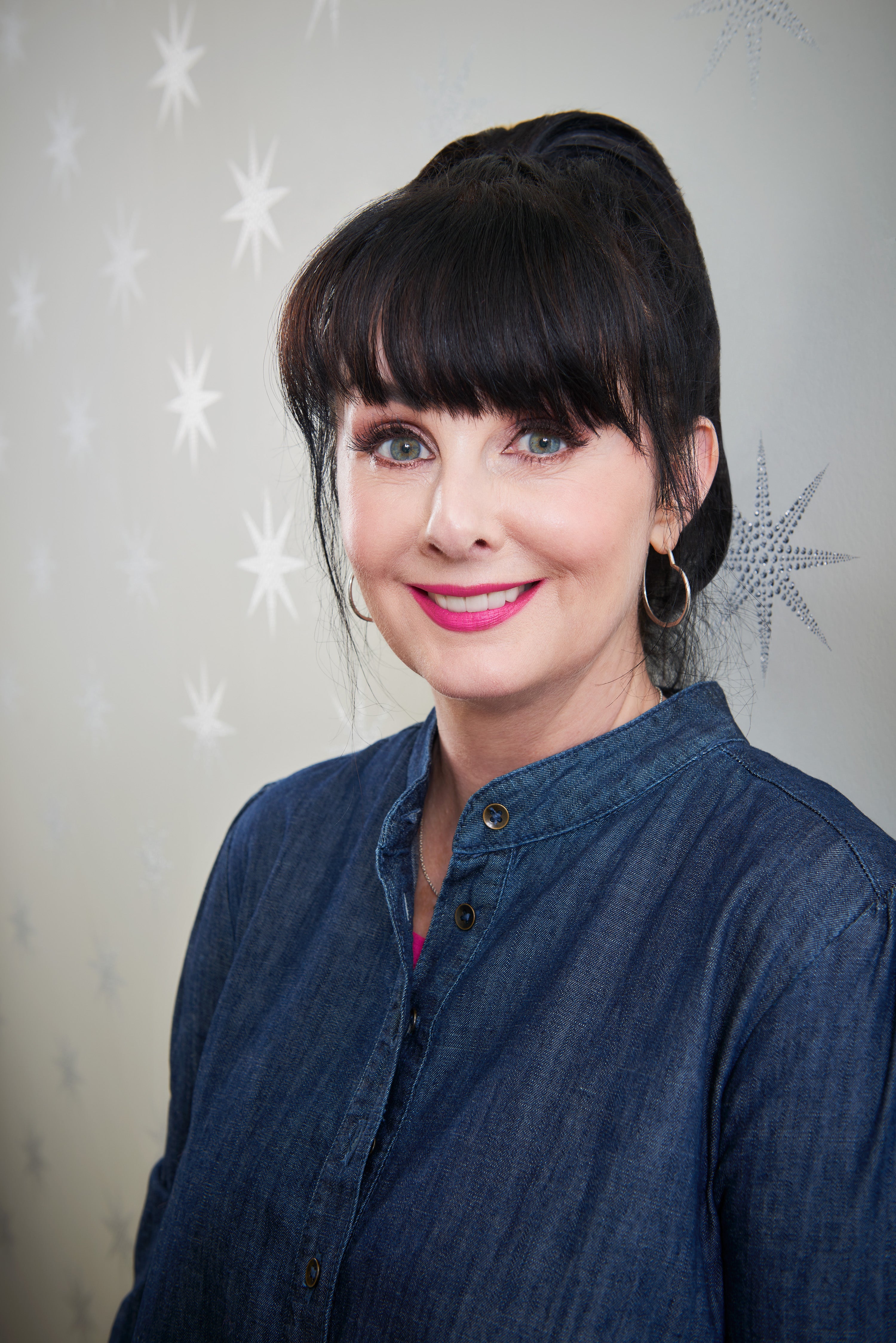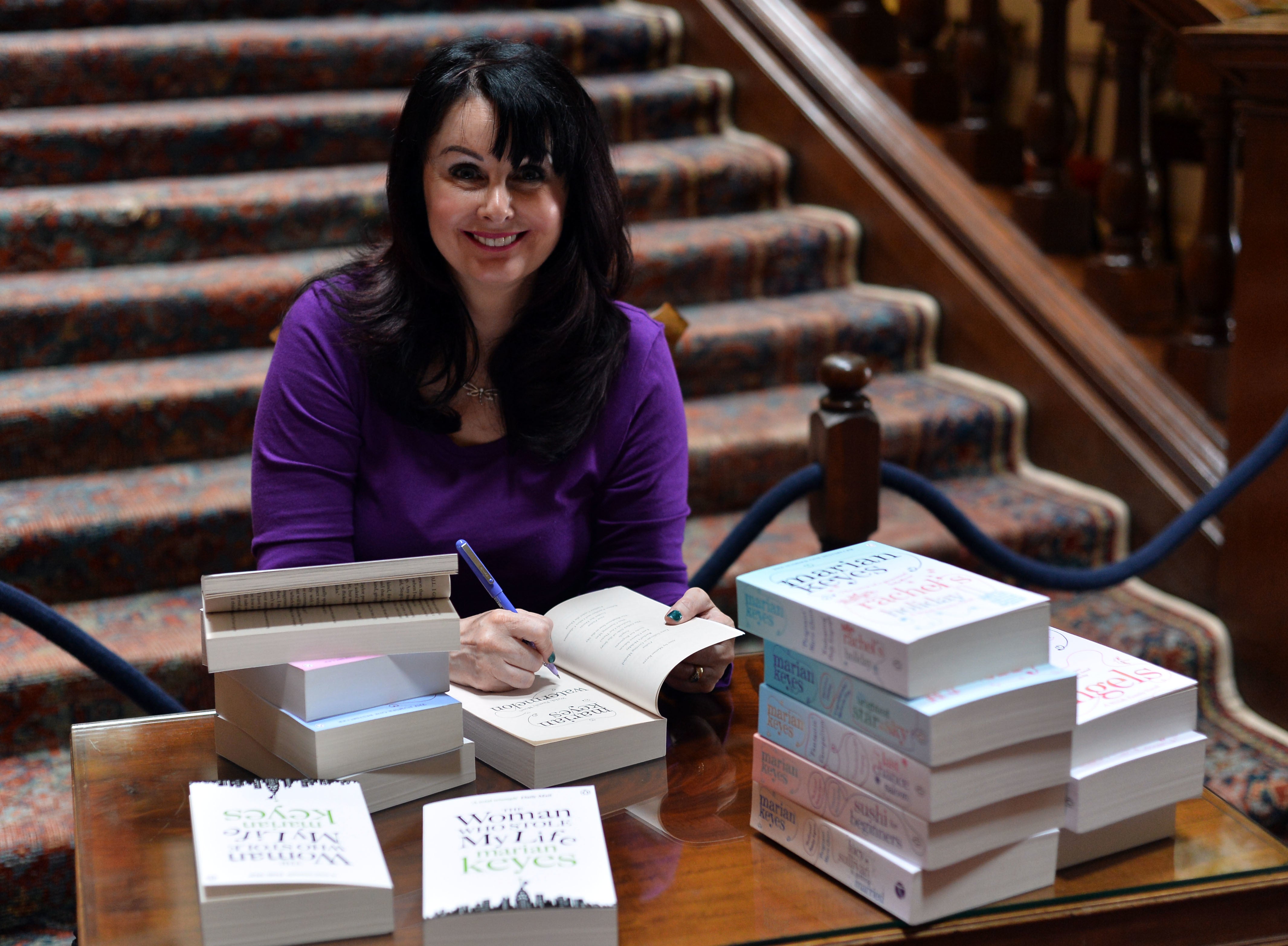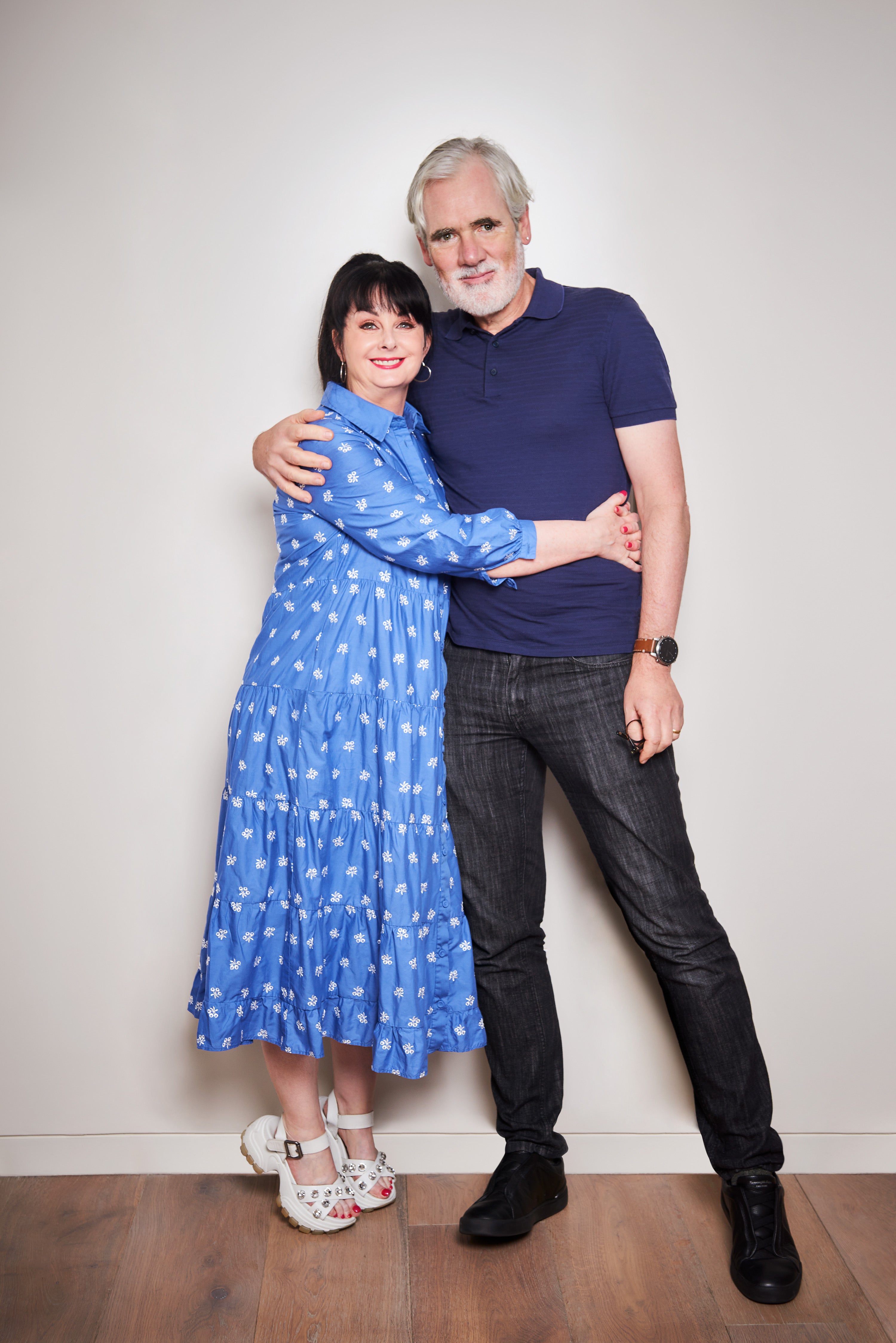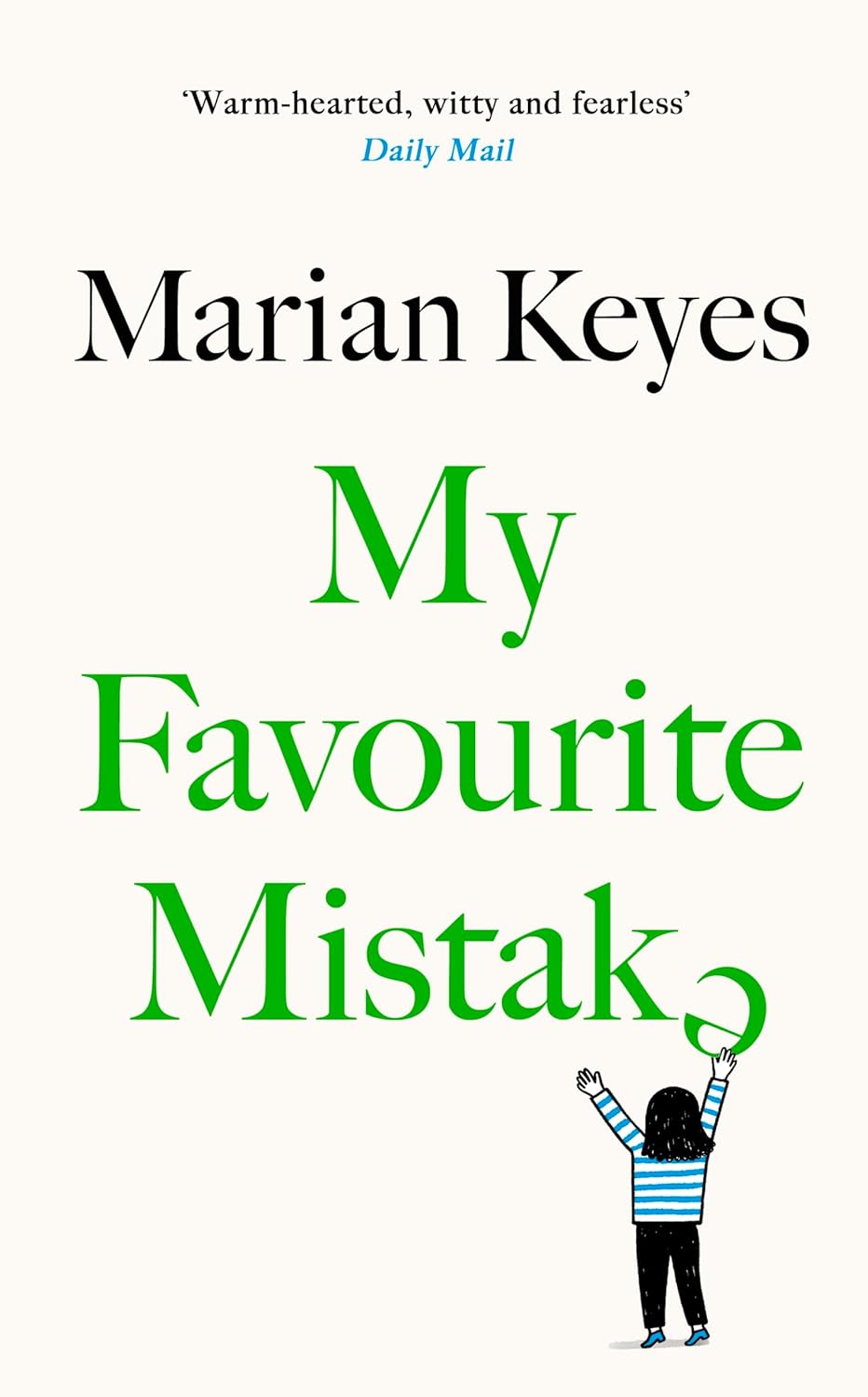Marian Keyes: ‘I really don’t like the myth that women don’t want sex’
She’s sold 35 million books, tamed literary snobs, and has a major Netflix adaptation in the works. As her 16th novel ‘My Favourite Mistake’ is released, Irish author Marian Keyes tells Jessie Thompson about putting everything from menopause to alcoholism on the page

![Marian Keyes: ‘I’m 60 now but my emotions are still very [close] to the surface – I’m still hurtable’](https://static.independent.co.uk/2024/04/08/09/211012_Marian20Keyes_S02_108_h_web.jpg)
Marian Keyes and I are having a cup of tea. We’re sharing a squishy sofa at a chic London hotel, a place where everything is pretty – even the teacups. “God, it’s all so beautiful,” the Irish author says, agog. It is. I wouldn’t mind stealing one of the teacups... but I won’t. “No, I will!” Keyes insists, not even joking. “I’ll steal them for you. You see, I have poor impulse control. And I like to be liked. And I probably would do it. If you dared me.” OK, OK: Marian, I dare you. “Please don’t, no, please don’t,” she squirms, as though she’s being held down and tickled. “God!”
I don’t actually believe Keyes is a thief – but I do believe she’s generous. In a career spanning three decades and 16 novels – as well as short stories, novellas and non-fiction – the Limerick-born writer has given readers hours of pleasure, writing chunky, chatty books that you can sink right into. Warm, funny and wise, they’re also roadmaps for how to overcome life’s inevitable hard times, bustling with worlds in which lightness dances gently with the dark.
In Watermelon, her 1995 debut and the first in her long-running Walsh sisters series, Claire Walsh’s husband leaves her for another woman just as she’s given birth to their first child. The Mystery of Mercy Close (2012), written amid Keyes’s crippling depression, was a story partly about mental health, while Rachel’s Holiday (1998) was about a woman going to rehab to confront her addiction issues – something Keyes did herself in 1995, for alcoholism. This Charming Man (2008) tackled themes of domestic violence, 2009’s The Brightest Star in the Sky had a storyline about sexual assault, and 2017’s The Break dealt with abortion.
Lest this make them sound bleak, know that this is Keyes’s gift: she broaches bold, political subjects, all while making her readers laugh. Her books aren’t as cosy as they’re sometimes sold, but boy, they sell – 35 million copies and counting, in fact. Her latest, My Favourite Mistake, picks up the story of Anna Walsh, first introduced to readers in Watermelon but given her own novel in 2006, Anybody Out There? That was a book about grief and rebuilding, as Anna fought to salvage her hotshot New York PR life while struggling to accept the death of her husband.
The follow-up, published this week, sees Anna return to Ireland feeling burnt out by her shiny but brutal job in beauty PR. It’s a novel that strikes me as a challenge to our censorious age; if there’s a message, it’s that we must forgive one another for past mistakes and be less brutal towards our lost, scatty younger selves. But Keyes originally had a different plan – she had been about to do something distinctly off-brand. “I’d been all set to write a book about horrible people,” she confides. “And then I decided – look, what do I want to read?”
At her home in Dun Laoghaire, Dublin, Keyes had been feeling like she had “nothing left in terms of resilience or endurance”. Russia had just invaded Ukraine, the pandemic had ravaged all of our lives. So, she decided: time to write a love story. “I liked the idea of a love story for people in midlife. You know, I’m not even midlife anymore, I’m 60 now. But I still feel very alive. My emotions are still very [close] to the surface. I can handle things better, but I’m still hurtable. I can still surprise myself. So I thought, why shouldn’t they have a bit of fun?”
When we meet, there’s no fanfare or fuss – Keyes’s husband Tony Baines (or “Himself” to her social media followers) quietly drops her off and picks her up. “Let’s sit on the sofa together,” she suggests, taking off her boots and settling in. In a bright pink top, her hair jet black, she is striking – especially her eyes, which widen as she talks. Her lilting Irish voice is quieter than you’d expect; she’s garrulous, but with a delicate, bird-like energy. Things she likes are emphatically described as “gorgeous”. Cautious of being presumptuous – “Again, I am not speaking for everybody,” she says, more than once – she shows the keen awareness for human foibles that makes her novels so rich. “I don’t want to do your milk,” she tells me, “because you might have your own special way.”
The writing of My Favourite Mistake began in February 2022. Fast, I think, for a 600-plus-page novel, considering Keyes’s joyously received Rachel Walsh sequel, Again, Rachel, had only just been published. “Oh my God, it’s so slow! I take forever,” Keyes frets. Anna is aware that her sense of existential malaise is a problem because, as she tells readers, “Unfortunately I was paid to be manically enthusiastic.” A breakup is looming, and so is burnout. She knows something must change, but feels guilty about it: “I wasn’t a nurse working in ER, I wasn’t a shelf-stacker on a zero-hours contract, I had the best job, with unlimited access to liquid exfoliators.”
When she returns to Ireland, she finds herself doing PR for a local wellness retreat, mediating a community dispute, and having weird meetings with handsome Joey, a face from the past who has a notorious history with women. “I wanted to write about a man who was toxic, who was a f***boy, and who had changed. I have changed so much. I think everyone should be given a chance to redeem themselves,” says Keyes.
Back when she wrote Watermelon, Keyes was spurred on by the fact that she never saw women like her depicted in books. There’s something quietly radical about the way she has continued to write about women’s real lives as they age. Anna, going through the menopause, practically has to go to the black market for HRT patches (“It made a difference for me,” Keyes says), and women in the novel talk openly about Botox, which Keyes does too.

“If I wasn’t doing the Botox, they’d go, ‘Oh God, she’s let herself go. Oh Lord save us.’ The minute you don’t, people say, ‘A little bit of Botox wouldn’t do you any harm...’” Although Keyes chooses to be open about it – people were saying how well she looked and she didn’t want to be misleading – she hopes one day not to care at all. “I’m really living for the day when I don’t get my roots done. When I stop getting the Botox. And I just think, ‘This is me now.’ When I’ve managed to extricate myself a bit more from that patriarchal template that all women are given from the day they were born.”
One scene made me punch the air: Anna, back on HRT and back in touch with her desires, thinks about a man she fancies and gives herself a moment of self-pleasure. “I really don’t like the myth that women don’t want sex,” Keyes says, frankly. “Even writing about the self-pleasure, it just felt like... no big deal. Vibrators aren’t even comic anymore. Not speaking for everybody, but there are plenty of us who aren’t mortified...” She stops to correct herself. “Well, I suppose mildly... I suppose I don’t want me mother reading this, you know...”
Hang on – has her mother read it? “She has,” Keyes replies, like a schoolgirl caught out. In fact, “Old Vummun”, as Keyes calls her on social media, loved the book. “I was just so grateful – she really withholds praise, it’s been a lifelong thing.” So yeah, sex scenes – no big deal. “Until I come to voice the audiobook, then it’s ‘Oh for God’s sake, why did I...’ But yeah, women in their forties and older, having sex. It happens.”
It has been gorgeous to have – I don’t know – become respectable
These days, Keyes is celebrated as much for being herself as for her books. She has a BBC podcast with the Irish comedian Tara Flynn, Now You’re Asking, in which they sensibly answer listeners’ problems. Her thousands of social media followers love her book recommendations and endearingly unfiltered annual tweets about Strictly Come Dancing. In 2022, Alan Yentob even made one of his Imagine documentaries about her. A new Keyes novel is a major publishing event. But for many years, she was belittled and patronised, her books marketed as “chick lit” and given pink, sparkly covers.
It was a jarring experience for readers; one of my first encounters with Keyes’s work, as a young woman trying to work out what my tastes should be, was formative. Why did this muscular book about serious topics have a sparkly cover? And why was there an unspoken sense that I shouldn’t bring it up in a uni seminar?
The misrepresentation and underestimation of Keyes’s work was an awkward, embarrassing blemish on the literary world for years, until a recent sea change in opinion began to see her recognised as an important writer. The way her work was packaged and treated certainly affected my relationship with her books – did it affect hers? “I feel privileged to have had a long enough career that perceptions did change,” she says. “It was frustrating in the beginning, because I felt what I was doing had worth. I wanted to entertain people and tell stories and make people laugh, but I wanted to show that women are more than prosecco and high heels and hot men.”

One critic labelled Rachel’s Holiday “forgettable froth” (a reminder: this was a book about addiction and recovery). “I knew that wasn’t right. But it made me very lacking in confidence.” She no longer cares whether or not men read her books, but she used to take issue with them dismissing her as a writer without reading her work. “There was a man who once described my books as saccharine. Saccharine is the last thing they were back then! They were quite raunchy, a lot of swearing. If you’re going to insult me,” she jokes, “could you please get the adjective right! Vulgar, I’d take. Crude. Uncouth!”
She will admit, “It has been gorgeous to have – I don’t know – become respectable,” the shadow of air-quotes floating around that last word. Overall, though, Keyes remains very humble about all that stuff. She had made her peace with not being taken seriously. There were women out there with bigger problems than their bestselling books being packaged incorrectly. Her publishers never stopped her from writing what she wanted to write. She felt lucky. She was grateful. “I keep using the word lucky. I’m lucky and grateful that this was what I was given.”
I’ll never feel that I have nothing to prove; I’m not that kind of person. But it did feel like, ‘You can stop being anxious about it. You’ve done your best. Continue to do your best. That’s all you have to do
But she had more power than she thought. At the 2018 Hay Festival, she condemned the sexist imbalance of the Wodehouse Prize for Comic Fiction, which had been awarded to only three female writers in 18 years. “Say what you like about me, but my books are funny. What more can I do to qualify?” she said at the time.
“That caused a right stir,” she says now, lowering her voice. “I hadn’t intended to. Then the next year, Nina Stibbe won. Nina says she wouldn’t have won if I hadn’t complained – she would totally have won. But I think it gave them a bit of a fright. Or just made them think, ‘Let’s do better.’” (Keyes was finally shortlisted for the prize in 2022, for Again, Rachel. It went to Percival Everett.)
It’s true that “popular” things often don’t win prizes – as we know, Barbie made millions and couldn’t get a Best Picture nomination. Surprisingly, Keyes has never even been longlisted for the Women’s Prize for Fiction, despite being one of our leading female authors and even having been a member of the judges’ panel (when it was the Orange Prize) in 2007. But in 2022, Keyes was named Author of the Year at the British Book Awards, a title whose previous holders have included Hilary Mantel, Bernardine Evaristo, Richard Osman and Kate Atkinson.
That mattered. “It felt like everything. It felt... I don’t have the words to describe that feeling of... I could exhale.” She speaks of it with a sense of wonder, still, her sentences speeding up and slowing down. “It’s kind of like, my work here is done, you know? That it’s okay. What I did, all along, it was good enough. There was warmth in the room for me. It was gorgeous,” she smiles. “It was the pinnacle, really, of my career. I’ll never feel that I have nothing to prove; I’m not that kind of person. But it did feel like, ‘You can stop being anxious about it. You’ve done your best. Continue to do your best. That’s all you have to do.’”

The stats for Keyes’s career are impressive – she’s been published in 36 languages, spent more than 150 weeks on the Sunday Times bestseller list, and, according to her website, the combined weight of her books amounts to 905 Percy Pigs. But her life changed quickly: Watermelon, her mid-Nineties debut, was published in the same year that she left a treatment centre for alcoholism, and the same year that she married her husband.
She recalls going to buy a sofa with Baines when they were moving in together, something she was able to pay for outright with a royalty cheque. “On the way home in the car, I had to roll down the window. Because I thought I was going to puke. I had never spent so much money before. I’d never had anything like that. I had always been so skint. And I was so afraid that I was overreaching – that I had squandered all of this.”
Perhaps this vigilance around taking things for granted comes from the fact that Keyes’s past struggles are always in her rear-view mirror. After recovering from alcoholism and finding herself with a successful career as an author, in 2009 she had a period of depression so extreme that she could no longer eat, sleep or speak, and was admitted to a psychiatric hospital. “It was an illness and it ran its course,” she said on Desert Island Discs in 2017.
Her novels are profoundly in touch with sadness and vulnerability, emotions she can still access easily. Although she’s at one with the fact that, even when life is good, things are always in flux in some way, she struggles not to absorb the sadness of others, making it hard for her to watch the news. “Whatever is going on, for me – maybe it’s a post-pandemic thing... the sorrow will destroy me. I’m always going to be porous, thin-skinned, over-emotional, and I’m constantly trying to manage that. That makes me sound precious, but this is who I am – I take on other people’s sorrow. I can be very joyous – but I just wish I could protect everyone. It’s a killer of a thing to have.”
“I think it just never stops, does it?” she ponders. Her “reservoir of sorrow and shame”, something she can still connect with, is one she used to drink in order to numb. Today we have the language to understand that depression and alcoholism are illnesses – but Keyes experienced them at a time when the social stigma was greater. Gen-Zers – like her “emotionally literate” 23-year-old niece – are changing that. “I just wish I had known that you can say, ‘I’m feeling anxious, overwhelmed, burnt out.’ We need these conversations. I love Gen Z. I just love their defiance.”
Gen Z may soon be loving her, too: Keyes’s 2020 novel Grown Ups, an ambitious family saga, is being made into a Netflix show by See-Saw, the company behind Heartstopper and Slow Horses. Like the recent smash One Day, it could open her work to a whole new generation. “The funny thing is, apparently I’m an executive producer. I have no idea what that is,” Keyes jokes. She won’t have lots of input, but would love the actors to be Irish, for no one to say “shall” or “naughty” (Irish people don’t say that), and for Sharon Horgan to play the lead role of Jessie.

This year, Keyes turned 60 and marked 30 years of sobriety. All these things conquered, all these books sold, the literary world’s respect won, Netflix at her door... what is she proudest of, I wonder? The answer comes without hesitation. “Getting sober. I mean, nothing good would have happened. And I just want to say this,” she says, with some urgency, “for anyone who thinks they will never be able to stop. I was that person. It was the love of my life. It was the centre of my life. I was willing to die for it. I was prepared to go wherever it took me. It didn’t turn out like that.”
Speaking with no jokes, no frills, she wants people to know that help is there, telling me that “dead is the best option for me” if the drinking had continued. “The thought of still being alive [and drinking] is just too horrible to contemplate.”
The tea has run out, but we chat for a little bit longer, about the light and the dark of life. A world without Keyes – that’s too horrible to contemplate. Storyteller, survivor, literary titan. I’d steal a teacup for her. Wouldn’t you?
‘My Favourite Mistake’ is out now, published by Penguin Michael Joseph. Marian Keyes will be appearing at this year’s Hay Festival, in conversation with Kirsty Lang on 26 May, and for a live recording of her podcast ‘Now You’re Asking’ with Tara Flynn on 25 May
Join our commenting forum
Join thought-provoking conversations, follow other Independent readers and see their replies
Comments
Bookmark popover
Removed from bookmarks